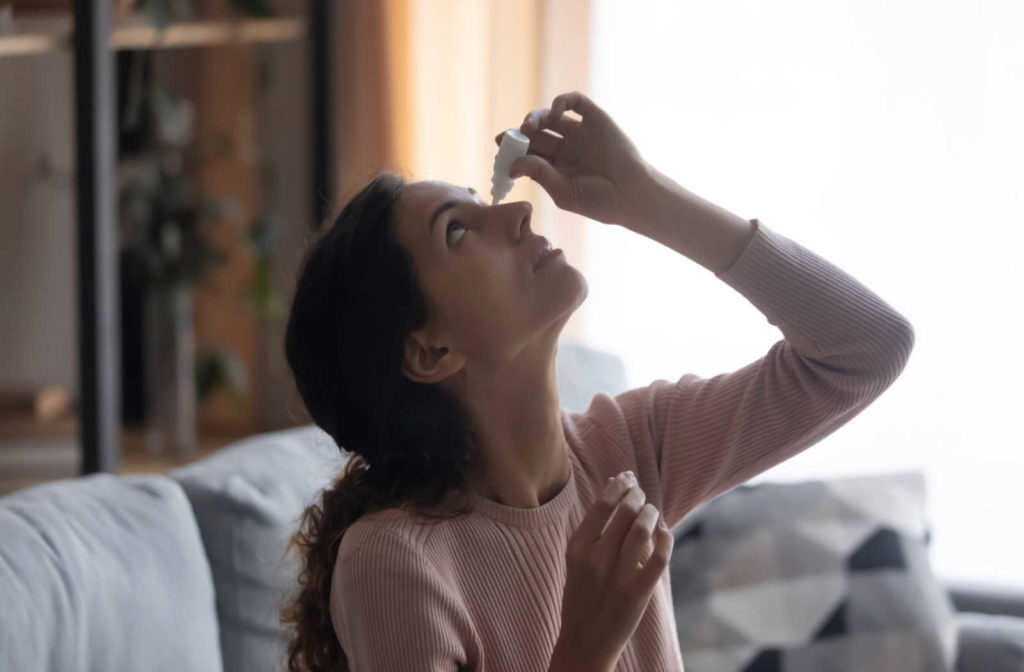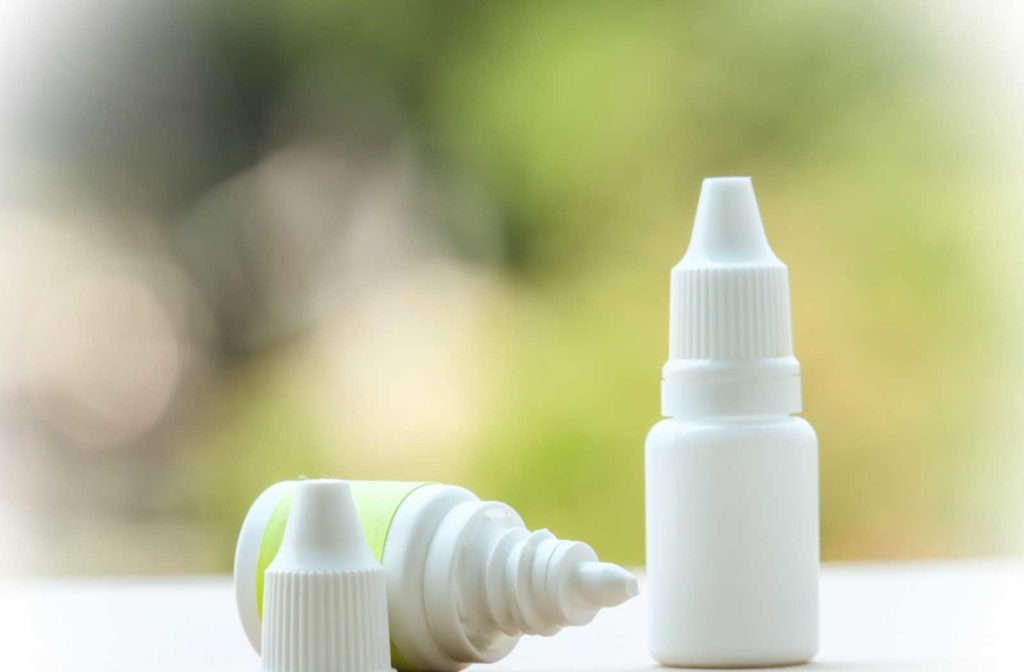Your eye doctor may recommend eye drops for several reasons, from dry eyes to eye disease treatments. Depending on the type, eye drops can provide moisture, treat inflammation, and much more. While eye drops have many benefits, can you still use them when they expire?
Continue reading to learn more about eye drops, including if you can use them when they expire and how to use them safely.
Eye Drops in Optometry: a Common Practice
Eye drops are a common way to address many eye issues, from general dryness to specialized treatments. Your optometrist may prescribe eye drops, or you can buy over-the-counter products, depending on your needs.
Some common uses of eye drops include:
- Cataract surgery
- Pink eye treatment
- Contact lens rewetting
- Eye infections
- Dry eye treatment
- Eye allergy relief
- Glaucoma management
- Moisture
Can You Use Expired Eye Drops?
Your eye drops are generally safe, but you shouldn’t use them after they expire. If stored and used correctly, eye drops should stay safe until they reach their expiration date. Afterwards, they lose their effectiveness, and there’s a chance of contamination.
There’s always a chance for bacteria growth once you break the seal of a bottle of eye drops, but using them carefully can help lower your risk. Additionally, many eye drops contain preservatives to help slow bacteria growth and protect against infection.
Knowing the expiration date of your eye drops can help remind you to replace them with a more effective bottle. Always check if they have expired before using eye drops, whether you have prescription or over-the-counter drops.
Follow Your Optometrist’s Instructions
Your eye drops should be safe to use as long as they aren’t expired and you’ve followed your eye doctor’s advice. Depending on the type of eye drops you have, you may need to follow specific instructions for storage and use. Some drops need to stay at room temperature, while others need to be cold, kept in a fridge or cooler area.
If you have artificial tears for moisture, you may have preservative or preservative-free eye drops. Eye drops without preservatives don’t have additives to fight off bacteria, so be careful when using these products. You typically have to get rid of these eye drops within 24 hours of opening them.
Eye drops rarely lead to problems when they’re sterile and used safely. Always check the expiry date of your eye drops and avoid letting the dropper touch any surfaces. Contaminated eye drops can lead to possible eye infections.

Using Your Eye Drops Safely
While eye drops have many benefits and uses, you must use them safely. They’re at risk of contamination by bacteria, which can lead to eye infections. No matter the eye drops you have, you must use them safely.
Follow these tips when using your eye drops to help prevent possible complications:
- Check the expiration date of your eye drops
- Wash your hands before & after using your eye drops
- Ensure the dropper is clean & doesn’t touch your eyes, eyelids, or another surface
- Replace your dropper if it touches the ground or another area—this contaminates the dropper
- Wait at least 5 minutes between types of eye drops if you have to use 2 or more
If you have a little one, help them use their eye drops safely by administering their drops yourself.
Administering Eye Drops
Putting in your eye drops is pretty simple overall, but using them without caution can lead to potential infections. If you use your eye drops correctly, you can prevent possible complications.
When using eye drops, tilt your head backwards and pull your lower eyelid down with 2 fingers, creating a pouch. Creating this space helps catch the fluid from the dropper more easily.
Squeeze the dropper carefully to administer a single drop into the created pouch, then close your eye for 30–60 seconds. Waiting for this time allows the eye drop to absorb.
Things to Avoid When Using Eye Drops
Another way to safely use your eye drops is by avoiding potential complications, including sharing eye drops and using them while wearing contact lenses.
It can seem nice to lend a helping hand and let someone borrow your eye drops to hydrate their eyes, but this is a potential source of infection. Someone may contaminate the dropper, leading to irritated eyes when you use your eye drops. No one wants an infection, so ensure you keep your eye drops for you and you only.
Additionally, avoid using your eye drops while wearing contact lenses. However, you can use them if your eye doctor believes it’s safe. Ask your optometrist about how to use your eye drops—they may have specific instructions for you to follow.
Experience the Benefits of Eye Drops
Your eye drops need to be safe and sterile to avoid unnecessary complications. Avoid using expired eye drops and always follow your optometrist’s advice. Contact your eye doctor at Legacy Eye Care if you have questions about your eye drops.



